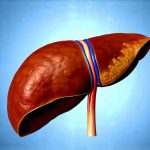The liver is often called the unsung hero of our bodies, working tirelessly behind the scenes to perform over 500 vital functions. From filtering toxins and processing nutrients to producing essential proteins and regulating blood sugar, its role is absolutely critical for overall health and wellbeing. Yet, we often don’t give it much thought until something goes wrong. Modern lifestyles, filled with processed foods, environmental pollutants, and chronic stress, place a significant burden on this vital organ. Building a daily routine that actively supports liver health isn’t about drastic changes or restrictive diets; it’s about incorporating small, sustainable habits into your everyday life that collectively make a big difference over time.
Ignoring liver health can lead to serious consequences, ranging from fatigue and digestive issues to more severe conditions like non-alcoholic fatty liver disease (NAFLD) and cirrhosis. Thankfully, the liver is also remarkably resilient and capable of regeneration, meaning we can actively work to improve its function and protect it from damage. This article will explore practical strategies for creating a daily routine focused on supporting your liver’s health – one that emphasizes nourishment, detoxification, and mindful living. It’s about empowering you to take proactive steps towards a healthier future, starting today.
Dietary Foundations for Liver Wellness
A cornerstone of any liver-supportive routine is undoubtedly diet. What we eat directly impacts the liver’s workload and its ability to function optimally. Prioritizing whole, unprocessed foods is paramount – think fruits, vegetables, lean proteins, and healthy fats. Reducing intake of processed foods, sugary drinks, and excessive amounts of saturated and trans fats significantly lessens the burden on your liver. A diet rich in antioxidants is particularly beneficial as they help combat oxidative stress, which can damage liver cells. Consider incorporating more cruciferous vegetables like broccoli, cauliflower, and Brussels sprouts, known for their detoxifying properties.
Furthermore, staying adequately hydrated is crucial. Water helps the liver flush out toxins and supports efficient metabolic processes. Aim for at least eight glasses of water daily, adjusting based on your activity level and climate. Fiber also plays a vital role; it aids in digestion and eliminates waste products, reducing the liver’s workload. Foods like oats, beans, lentils, and whole grains are excellent sources of fiber. It’s not just about eliminating “bad” foods, but actively including “good” ones that provide the nutrients your liver needs to thrive.
A balanced dietary approach isn’t about deprivation; it’s about making informed choices and creating sustainable habits. Small changes like swapping sugary drinks for water, choosing whole grains over refined carbohydrates, and adding a side of vegetables to every meal can have a cumulative positive effect on liver health. Remember that consistency is key – building these healthy eating patterns into your daily routine will yield long-term benefits.
Optimizing Your Morning Routine
The way you start your day can significantly impact your overall wellbeing, including the health of your liver. Incorporating simple habits into your morning routine can set a positive tone and support liver function from the get-go.
- Hydration First: Begin your day with a glass of warm lemon water. This helps rehydrate you after sleep and stimulates digestion. Some believe it also supports detoxification, though scientific evidence is still emerging.
- Nutrient-Rich Breakfast: Avoid sugary cereals or processed breakfast foods. Opt for a balanced breakfast containing protein, healthy fats, and complex carbohydrates. Examples include oatmeal with berries and nuts, eggs with avocado toast, or Greek yogurt with fruit. This provides sustained energy and minimizes blood sugar spikes, reducing stress on the liver.
- Mindful Movement: Even 10-15 minutes of gentle exercise, like yoga or a brisk walk, can improve circulation, reduce stress, and enhance liver function. Exercise helps burn glucose and fat, preventing their accumulation in the liver.
These seemingly small changes collectively create a morning routine that prioritizes liver health and sets you up for a productive and healthy day. It’s about creating a habit of self-care that extends beyond simply checking off tasks – it’s about nourishing your body from the inside out.
The Importance of Stress Management
Chronic stress is a silent killer, impacting every organ system in the body, including the liver. When we are stressed, our bodies release cortisol, a hormone that can disrupt metabolic processes and contribute to inflammation. Prolonged elevated cortisol levels can lead to insulin resistance and fat accumulation in the liver, potentially leading to NAFLD. Therefore, incorporating stress-management techniques into your daily routine is essential for supporting liver health.
Techniques like meditation, deep breathing exercises, yoga, or spending time in nature can help lower cortisol levels and promote relaxation. Even short periods of mindfulness throughout the day can make a significant difference. Prioritizing sleep is also crucial; aim for 7-8 hours of quality sleep each night to allow your body to repair and regenerate. Remember that stress management isn’t about eliminating stress entirely – it’s about developing healthy coping mechanisms to manage it effectively.
Mindful Movement & Exercise Habits
Regular physical activity is a powerful tool for supporting liver health, extending beyond simply burning calories. Exercise improves insulin sensitivity, reducing the risk of fat accumulation in the liver. It also enhances circulation, aiding in detoxification and promoting efficient metabolic processes. The type of exercise isn’t as important as consistency; find activities you enjoy and incorporate them into your daily routine.
- Aerobic exercise (walking, running, swimming) improves cardiovascular health and reduces overall body fat, lessening the burden on the liver.
- Strength training builds muscle mass, which increases metabolic rate and enhances glucose utilization.
- Yoga and Pilates improve flexibility, balance, and mindfulness, reducing stress and promoting relaxation.
Aim for at least 30 minutes of moderate-intensity exercise most days of the week. Breaking it up into shorter bursts throughout the day is perfectly acceptable – a 10-minute walk during lunch break or a quick workout after work can be just as effective as one longer session. The key is to make movement a non-negotiable part of your daily routine, not something you “should” do but rather something you enjoy doing for your overall health and wellbeing.


















